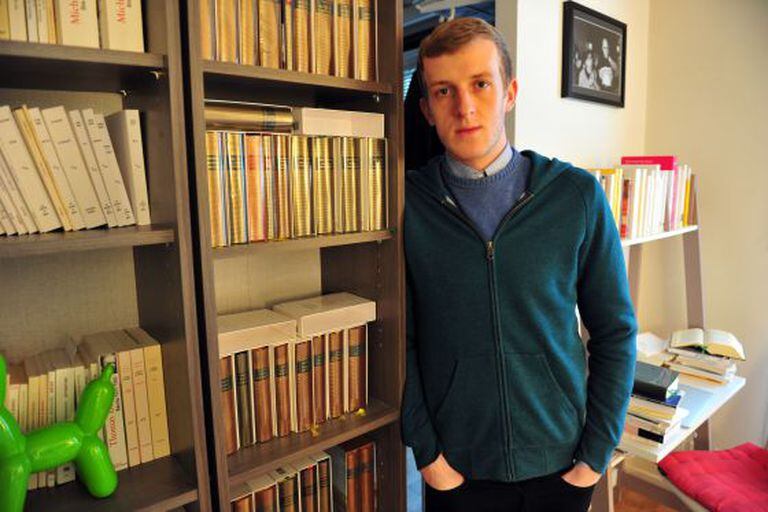

Given it’s all true, I asked Louis, why does he call his books “novels”? “Truth,” he replied, is not “immediately visible”: “You have to build it to find it.” Although he has renounced invention, his purpose-built books are highly wrought, stylised and, above all, selective depending on his polemical intention. Louis and I met in London the day after his talk, on the terrace of a decidedly un-Parisian – half-heartedly Italian, touristy – café in Russell Square. Science and Technical Research and Development.Infrastructure Management - Transport, Utilities.

Information Services, Statistics, Records, Archives.Information and Communications Technology.HR, Training and Organisational Development.Health - Medical and Nursing Management.Facility / Grounds Management and Maintenance.Events and Offers Sign up to receive information regarding NS events, subscription offers & product updates. Ideas and Letters A newsletter showcasing the finest writing from the ideas section and the NS archive, covering political ideas, philosophy, criticism and intellectual history - sent every Wednesday.

Weekly Highlights A weekly round-up of some of the best articles featured in the most recent issue of the New Statesman, sent each Saturday. The Culture Edit Our weekly culture newsletter – from books and art to pop culture and memes – sent every Friday. Green Times The New Statesman’s weekly environment email on the politics, business and culture of the climate and nature crises - in your inbox every Thursday. The New Statesman Daily The best of the New Statesman, delivered to your inbox every weekday morning. World Review The New Statesman’s global affairs newsletter, every Monday and Friday. The Crash A weekly newsletter helping you fit together the pieces of the global economic slowdown. Select and enter your email address Morning Call Quick and essential guide to domestic and global politics from the New Statesman's politics team. Louis has made it his mission to render with almost masochistic candour the suffering and humiliations engulfing his lonely childhood. “I want to write only the same story again and again,” Louis writes in his latest book, A Woman’s Battles and Transformations, about his mother’s escape from her dismal marriage to Louis’ domineering father and from their village (where the book’s translator, the novelist Tash Aw, happened to live for years). His trenchant, unadorned style spurns any embellishment, of either reality or prose. In a talk in 2018, Louis, who studied sociology at the prestigious École Normale Supérieure in Paris, said he “can’t” write fiction because he wanted his “real father to exist in a book”. When we met on a muggy day in early July he told me that memoir is his “revolutionary weapon” of choice, which he uses to relentlessly “confront the dominant class” with a reality they’d prefer to ignore. But for Louis, 29 and already having enjoyed – or endured – nearly a decade of global and sometimes stormy literary celebrity, autobiography is a métier. Most people write one autobiography, if that, near the end of their lives. Such incredulity attests to the cultural invisibility of the politically neglected milieu the book evokes, one that burst into public view again in 2018 with the gilets jaunes movement, of which Louis was a prominent supporter. They apparently couldn’t countenance that their advanced, prosperous country could harbour such an immiserated, self-enclosed world of alcoholism, pain, premature death, of virulent machismo, homophobia and racism.Īfter the book was published in France in 2014, when Louis was just 21, the press descended on his hometown – Hallencourt – to maliciously fact-check his depiction of it. Louis’ manuscript – a searing autobiographical account of growing up in a stricken, isolated, deindustrialising village and being shunned for his queerness by his working-class family – was initially rejected because the publisher didn’t believe its setting was real. The interviewer wasn’t the first to make the mistake. Given the book’s “blurring of fact and fiction”, how should we classify it? Every word is true, Louis insists, “every scene of this book I have experienced”. In a 2017 interview with the French writer Édouard Louis, marking the translation into English of his explosive first “novel”, The End of Eddy (2014), the interviewer, treading with caution, notes that “you have said that some of the vignettes are based on fact”.


 0 kommentar(er)
0 kommentar(er)
